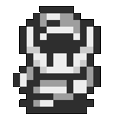I don’t really think this will be a long review, this book is part of The Expanse series and by itself, it’s probably not as thought provoking or insightful as some of the other books I’ve read.
This is straight up awesome world building, characters, great action and cool science fiction, further developing the universe that I got introduced to since the first book Leviathan Wakes.
In this book we get introduced to three new characters that get involved in a plot where the events of the previous book have basically turned reality on its head, and Humanity is trying to make sense of things it still can’t comprehend.
We have Bobbie, essentially a Spartan from the Halo universe who goes through some rough stuff, Prax, a botanist whose daughter gets kidnapped for mysterious reasons, and Avasarala, a politician who is trying to keep the delicate balance of relative peace between the different factions of Humanity. And of course, the original cast, which remains as awesome as ever.
I won’t say much more of the plot, which is great, develops characters and relationships further and kept me and my book club turning pages for a while.
Each character gets a moment to shine, in fact, like the first book where we have two concurrent plots from the point of view of two characters, here we do the same, but with four! And despite how confusing that may seem, it just works, and keeping the thread of the general plot is not difficult, at least not for me.
Basically, if you liked the first book, the second one is just as good.
I don’t think of this as ground-breaking, philosophical, thought-provoking stuff, even though as a whole it kind of is. What I mean to say is that this is much more action heavy, with cool moments, great sciencey stuff, tremendous world building, and fun characters, it is a journey I want to follow for as long as it keeps my interest, and so far it has managed to achieve with absolute success. It really is like watching the best action blockbuster ever in book form, and I am loving it.















